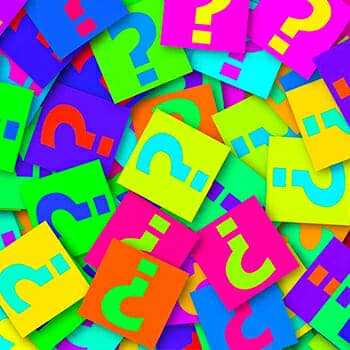 Here’s a question and answer about how to memorize phrases:
Here’s a question and answer about how to memorize phrases:
Anthony,
My “spoken” Chinese teacher makes a huge deal out of not memorizing
vocabulary out of context, meaning the word should be included in a phrase.
Do you have any thoughts on this and how do you deal with sentences using the Magnetic Memory Method system? I’ve read your book but I haven’t tweaked it into pinyin yet.
Thanks in advance.
Why There Is No Such Thing As Learning
A Word Out Of Context
My first answer is that there is no such thing as learning a word out of context.
Think about it:
I doubt very many of us remember the first word we ever learned, but it’s unlikely that we could ever find the origins.
That would be like picking up the phone and dialing all the way back to Adam, as the great word impresario James Joyce once put it.
Not only that, but every word always has a context…
Starting with its definition!
And iff you are using the Magnetic Memory Memory – for any language whatsoever – then you will always already be placing the word into context.
This is true for several reasons:
1. You’ll be using a Memory Palace. I suggest specifically using a Memory Palace for language learning.
2. You’ll be making associations based on your mother tongue
3. You’ll be creating new associations based on new familiarity with the target language
Here’s The Real Danger
The real danger is going around trying to learn without making connections and associations.
Having a dedicated memory strategy based on well-understood mental imagery is really the best way to ensure that you’re always creating plenty of context for both words and phrases.
After all…
Without a basis for association, it is impossible to learn a second language.
And without a dedicated memorization strategy (who would want that?), your brain will be starved for connections it could otherwise enjoy and benefit from.
As an important aside, the context element is increased even further if you use the Magnetic Memory Memory to work with non-Latinate alphabets.
But on that point I must remain mute for now. That’s because memorizing printed Chinese or Russian is a major feature of a new video course I’ll be releasing in the future. The concept is completely new to the Magnetic Memory Method and works gangbusters for every kind of alphabet one could ever hope to encounter.
Do You Know The Fluency Food Chain?
My second answer is that your teacher probably isn’t wrong about this (is there a right and wrong to learning?), but a lot depends on the particular student and where he or she falls on the fluency food chain.
For instance, if you already know enough grammar, then you shouldn’t need to bother with memorizing each and every word with a phrase.
Instead, you should be able to use the new word more or less immediately within a phrase, no matter how simple the phrase may be.
Seriously. That’s a huge part of the Big Five of Language Learning after all. Actually using the words you learn in phrases.
Focus On Phrases That Are Immediately Useful
Another issue I find with language learners is that they fixate on learning phrases that aren’t all that useful.
For example, I lived in Germany for many years while developing bilingualism in this language.
During that time, I almost never heard any of the German phrases they teach in the books for people who want to speak a little while they travel.
There’s more:
The reality is that people don’t usually speak in phrases!
Far from it.
They speak in an endlessly shifting tirade of contexts – rarely just one context – and they innovate language far more than they generate it from some static pool of available constructions (which has in the past been a popular linguistic theory).
In other words, you’re going to encounter cliches and turns of phrase, not textbook political correctness. Be prepared for that and memorize the phrases native speakers actually use.
Focus On How People Really Speak Will Never Hurt You
Cliches and turns-of-phrase are fantastic for learning multiple words at once and getting a better taste for grammar.
Actual speech also connects with what Ezra Pound called the melopoeia, phanopoeia and logopoeia of a language.
These terms from Pound refer to the musicality, imagery and logic of a language. If you must use rote learning, use it the right way.
And when it comes to these three features, we realize even more just how much language is not a fixed thing.
By the same token, reciting piles of phrases is not speaking a language.
We need to be able to use the words we learn pure and simple. That’s key to learning any new language efficiently.
To try fix them within a fixed field can be counterproductive to the extreme and merely frustrate the student.
How To Memorize Phrases In A Memory Palace
If a person insists on memorizing stock phrases, I think they should build a separate Memory Palace specifically designated for phrases and phrases alone.
And I think that the main words of these phrases should also be stored in their alphabetically assigned Memory Palaces. That means not in the Phrase Memory Palace alone.
The ultimate truth is that although the Magnetic Memory Method can be used to memorize phrases, it is meant to give you so much vocabulary that you won’t need to memorize phrases or complete sentences.
There really isn’t a magic bullet to this, but when you learn to use a Memory Palace, what you’re looking for is to turn your brain into a highly agile target.
That way, when you’re listening to someone or reading something, you’re “struck” by the meaning of more and more words the more you continue memorizing them.
The more one focuses on phrases, the less often they’ll be struck because, as I said, people don’t really tend to talk in phrases.
And depending on your reading material or viewing choices, the authors you read or the screenwriters who put the words into the actors you watch talking on the screen don’t talk in phrases either.
To sum up:
Learn and memorize words and you’ll understand hundred, if not thousands of of sentences. And understand how this process can help you memorize vocabulary too.
Slow yourself down by memorizing phrases and you’ll maybe recognize a handful of words from time to time.
And when you do encounter words you’ve learned, you might have to “extract” them from the phrase before you can spend time decoding them from the flood of real language bursting from every corner of the multiverse.
This is why the Magnetic Memory Method was originally created: to help language learners navigate, one magnetized word at a time. Of course, some people balk at this suggestion. They will protest that you need thousands of words to achieve fluency. But this simply isn’t true and the exact number of words needed for fluency depends on your precise goal.
But even if there were a magic number, if you can’t memorize three words reliably… how are you going to memorize thirty-thousand?
So by all means, go on a phrase diet, fatten up on some words and only then memorize them in phrases.
And understand that my advice is different than what language learning experts like Luca Lampariello teaches. But my focus on one word at a time not far from what Olly Richards teaches in his language learning books.
In any case, it doesn’t really matter what the experts say. What matters is how you use the techniques.
And how you add follow up.
How to follow up well?
Follow up by telling someone what you’ve learned about memorization.
Teaching a skill is one of the best ways to learn it and helping people improve their memory is one of the best ways we can make the world a better place.
The more we remember, the more we can remember. And the more we learn, the more we can learn.
Related Posts
- The Beauty of Memorizing Backwards
Using backwards memory drills is just as important as moving forwards when using Memory Palaces…
- The Beauty of Memorizing Backwards
Using backwards memory drills is just as important as moving forwards when using Memory Palaces…
- The Beauty of Memorizing Backwards
Using backwards memory drills is just as important as moving forwards when using Memory Palaces…




